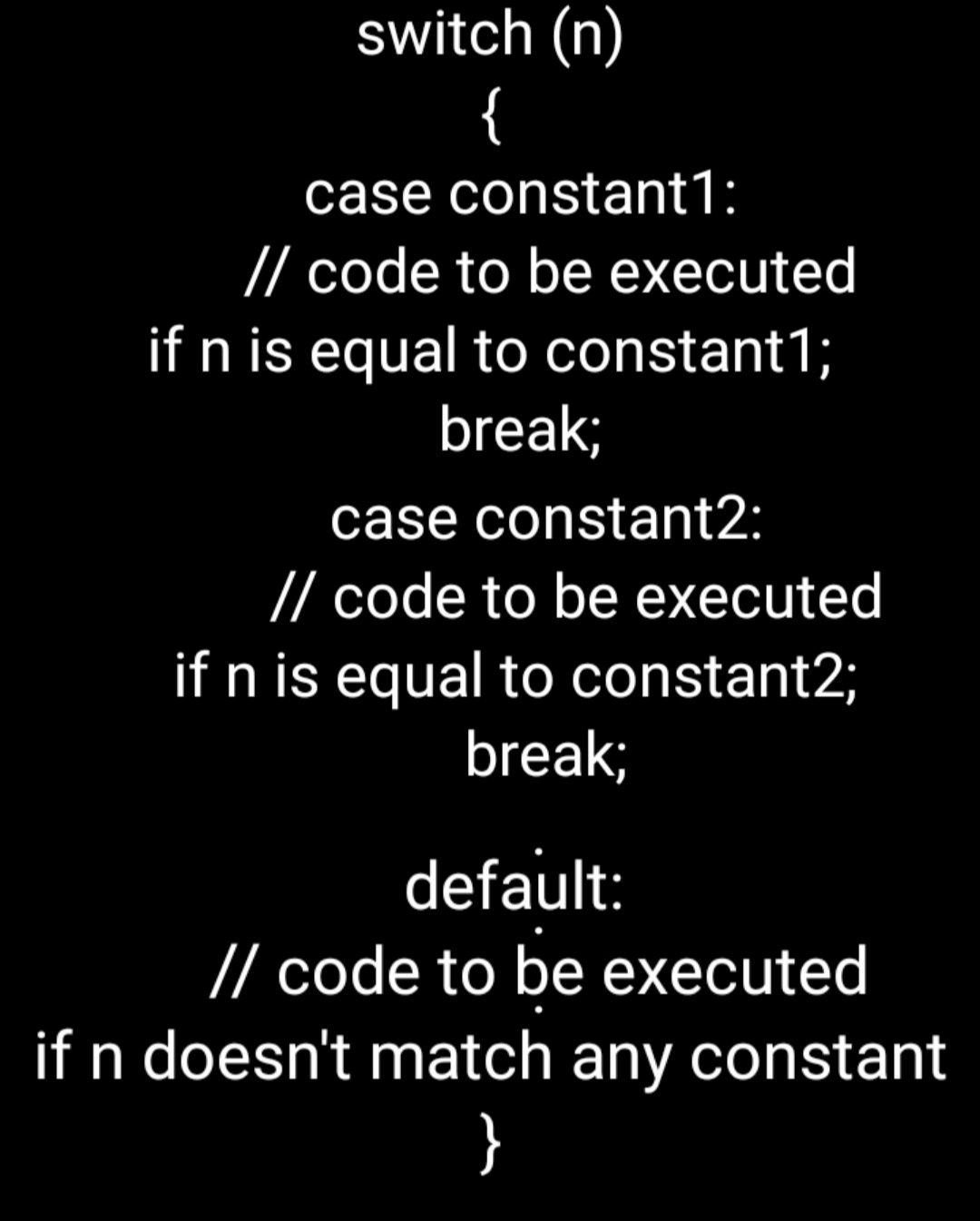DOUBLE DIMENSION ARRAY
1.PRINT ALL THE ELEMENT OF DOUBLE DIMENSION ARRAY:
#include<stdio.h>
int main()
{
int array[3][3]={{7,8,9},{1,2,3},{4,5,6}};
int i,j;
printf("Elements of array is given below\n");
for(i=0;i<=2;i++)
{
for(j=0;j<=2;j++)
{
printf("%d ",array[i][j]);
}
printf("\n");
}
}
•Output
Elements of array is given below
7 8 9
1 2 3
4 5 6
2.USER INPUT IN DOUBLE DIMENSION ARRAY:
#include<stdio.h>
int main()
{
int array[50][50],row,col;
int i,j;
printf("Enter row \n");
scanf("%d",&row);
printf("Enter col \n");
scanf("%d",&col);
printf("Enter %d integer value one by one\n",row*col);
for(i=0;i<row;i++)
{
for(j=0;j<col;j++)
{
scanf("%d",&array[i][j]);
}
}
printf("Elements of array is given below\n");
for(i=0;i<row;i++)
{
for(j=0;j<col;j++)
{
printf("%d ",array[i][j]);
}
printf("\n");
}
}
•Output
Enter row
2
Enter col
2
Enter 4 integer value one by one
4
5
6
9
Elements of array is given below
4 5
6 9
3.FIND THE SUM OF ALL THE ELEMENT IN ARRAY:
#include<stdio.h>
int main()
{
int array[50][50],row,col,sum=0;
int i,j;
printf("Enter row \n");
scanf("%d",&row);
printf("Enter col \n");
scanf("%d",&col);
printf("Enter %d integer value one by one\n",row*col);
for(i=0;i<row;i++)
{
for(j=0;j<col;j++)
{
scanf("%d",&array[i][j]);
}
}
printf("Elements of array is given below\n");
for(i=0;i<row;i++)
{
for(j=0;j<col;j++)
{
printf("%d ",array[i][j]);
sum=sum+array[i][j];
}
printf("\n");
}
printf("Total sum =%d",sum);
}
•Output
Enter row
2
Enter col
2
Enter 4 integer value one by one
4
5
6
9
Elements of array is given below
4 5
6 9
Total sum =24
4.ADDITION OF DOUBLE DIMENSION ARRAY:
#include<stdio.h>
int main()
{
int array_first[2][2]={{1,2},{3,4}};
int array_second[2][2]={{1,2},{3,4}};
int array_third[2][2];
int i,j;
printf("First array is given below\n");
for(i=0;i<=1;i++)
{
for(j=0;j<=1;j++)
{
printf("%d ",array_first[i][j]);
}
printf("\n");
}
printf("Second array is given below\n");
for(i=0;i<=1;i++)
{
for(j=0;j<=1;j++)
{
printf("%d ",array_second[i][j]);
}
printf("\n");
}
printf("Addition of First and Second array is given below\n");
for(i=0;i<=1;i++)
{
for(j=0;j<=1;j++)
{
array_third[i][j]=array_first[i][j]+array_second[i][j];
printf("%d ",array_third[i][j]);
}
printf("\n");
}
}
•Output
First array is given below
1 2
3 4
Second array is given below
1 2
3 4
Addition of First and Second array is given below
2 4
6 8
5.SUBTRACTION OF DOUBLE DIMENSION ARRAY:
#include<stdio.h>
int main()
{
int array_first[2][2]={{6,7},{8,9}};
int array_second[2][2]={{1,2},{3,4}};
int array_third[2][2];
int i,j;
printf("First array is given below\n");
for(i=0;i<=1;i++)
{
for(j=0;j<=1;j++)
{
printf("%d ",array_first[i][j]);
}
printf("\n");
}
printf("Second array is given below\n");
for(i=0;i<=1;i++)
{
for(j=0;j<=1;j++)
{
printf("%d ",array_second[i][j]);
}
printf("\n");
}
printf("Sutraction of First and Second array is given below\n");
for(i=0;i<=1;i++)
{
for(j=0;j<=1;j++)
{
array_third[i][j]=array_first[i][j]-array_second[i][j];
printf("%d ",array_third[i][j]);
}
printf("\n");
}
}
•Output
First array is given below
6 7
8 9
Second array is given below
1 2
3 4
Addition of First and Second array is given below
5 5
5 5
6.MULTIPLICATION OF DOUBLE DIMENSION ARRAY:
#include<stdio.h>
int main()
{
int array_first[2][2]={{1,2},{3,4}};
int array_second[2][2]={{1,2},{3,4}};
int array_third[2][2];
int i,j,k,sum;
printf("First array is given below\n");
for(i=0;i<=1;i++)
{
for(j=0;j<=1;j++)
{
printf("%d ",array_first[i][j]);
}
printf("\n");
}
printf("Second array is given below\n");
for(i=0;i<=1;i++)
{
for(j=0;j<=1;j++)
{
printf("%d ",array_second[i][j]);
}
printf("\n");
}
printf("Multiplication of First and Second array is given below\n");
for(i=0;i<=1;i++)
{
for(j=0;j<=1;j++)
{
sum=0;
for(k=0;k<=1;k++)
{
sum=sum+array_first[i][k]*array_second[k][j];
}
array_third[i][j]=sum;
printf("%d ",array_third[i][j]);
}
printf("\n");
}
}
•Output
First array is given below
1 2
3 4
Second array is given below
1 2
3 4
Addition of First and Second array is given below
7 10
15 22
7.TRANSPOSE OF DOUBLE DIMENSION ARRAY:
#include<stdio.h>
int main()
{
int array[2][2]={{5,5},{9,9}};
int i,j;
printf("Array is given below\n");
for(i=0;i<=1;i++)
{
for(j=0;j<=1;j++)
{
printf("%d ",array[i][j]);
}
printf("\n");
}
printf("Transpose of Array is given below\n");
for(i=0;i<=1;i++)
{
for(j=0;j<=1;j++)
{
printf("%d ",array[j][i]);
}
printf("\n");
}
}
•Output
Array is given below
5 5
9 9
Transpose of array is given below
5 9
5 9


Comments